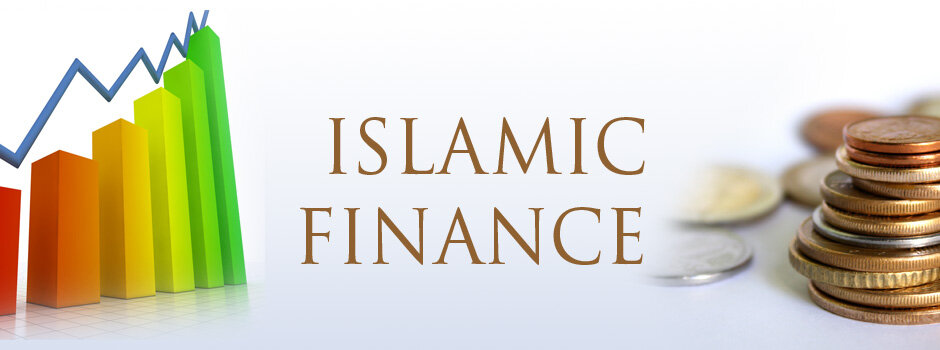IAIF holds pre-session on 9th Islamic Finance Conference

TEHRAN- The Iranian Association of Islamic Finance (IAIF) held a pre-session on the 9th Islamic Finance Conference on February 4.
Dr. Aly Khorshid, Dean of Business & Economics, LondonUni, Dr. Habib Ahmed Sharjah, Chair in Islamic Law & Finance, Durham University, and Dr. Syed Musa Bin Syed Jaafar Alhabashi, Former Dean, IIUM Institute of Islamic Banking and Finance (IIiBF), were the speakers of the event, whose speeches come as follows.
Prof. Dr. Habib Ahmed, Sharjah Chair in Islamic Law & Finance, Durham University Business School
Islamic Finance: Current Issues, Global Practices and Future Directions
In the beginning of his lecture, Dr. Ahmed said Islamic finance is for humanity, not only Muslims.
As to Sustainable Development Goals (SDGs) and finance, he said Developing countries will face a gap of $2.5 tn. annually to achieve SDGs-this figure has increased in the post COVID era to $4 tn. It is worth mentioning that the financial sector has an important role to promote SDGs.
The market share of the Islamic finance industry in 2022 reached $3,058.7 bn, which is a new record.
Regarding the opportunities for Islamic finance, Dr. Ahmed said, sustainable finance, financial inclusion, green infrastructure investments, social finance and enhancing stability are some of them, stressing they require radical innovations support by technology.
Radical innovation: ethical values must be embedded in product development along with legal compliance. In addition, technology plays an important role in innovation.
Islamic banks are structured as share-holders centered companies using organizational formats of interest-bearing debt-based institutions (marginal Innovation).
At the end he emphasized that moving from marginal meaning to radical meaning would require using ‘Innovative engineering’, that is start with needs and develop appropriate product to fulfil the need. Islamic values and principles are aligned with Sustainable Development.
Prof. Dr. Syed Musa Alhabshi, Former Dean, IIUM Institute of Islamic Banking and Finance International Islamic University, Malaysia
The Role of Islamic Finance Industry in Financing Enterprises
Finance as a discipline and body of knowledge can be defined from technical, operational and strategic perspectives, adding financial management significantly relate to the decision-making process whilst corporate finance focus on the corporate investor wealth management function.
Finance decisions are classified as financing, investment and dividend decisions. Investors expect wealth maximization in terms of shareholder value while, customers expect service quality in terms of customer value. Sustainable value would be a composite of shareholder and customer value.
He mentioned though Islamic financing has grown exponentially in banking and capital markets with significant development in Takaful, Islamic financing has been financial sector centric is prevalent. “Moreover, we need to expand and extend to a broader spectrum of enterprises in the non-financial sector with the advent of FinTech of business and social enterprises need to be explored and established.
With the use of Artificial Intelligence and related technologies, customer support and care could be enhanced with timely advice and intervention to enhance the success of the enterprise. Islamic finance for enterprises based on trust value will be directed to achieving the Maqasid Al Shariah” Dr. Syed Musa said.
Prof. Dr. Aly Khorshid, Dean of Business & Economics School, London Uni
Islamic financial instruments and financing of enterprises
At first, he said the market of Sharia-compliant assets is approximately $1.2 Trillion. There are 1.7 billion Muslims in the world (23% of the total world population) with an annual growth of 15% (in 2020 Muslim population is expected 25% of the world population), making it 2nd largest religion after Christianity, only 20% of those live in Arab Countries.
Prohibitions in Islam in terms of Islamic finance are unfairness & unjust, riba (usury), gharar (deception & speculation), gambling, monopolies, short sales, money trading (money is a medium, not a commodity) and dealing in unlawful or unethical goods or services.
Islamic finance is based on the principle of both profits and risks sharing in respect of investment being shared between the financier and the customer. Islamic investors share the risk and the profit according to their investment and pre-agreed role, while conventional financing focuses on employing funds on a cost-for-time basis and charging interest (Riba).
Regarding the main Islamic financial instruments, Dr. Khorshid said Ijarah, Mudarabah, Murabah, Musharakah, Istisna, Sukuk and Qard Hassan are among them.
Then he dealt with some of them as follows:
Musharakh involves a mutual contract to participate in a commercial enterprise and it is a partnership arrangement.
Mudarabah is a special kind of partnership in which one partner invests money with another entrepreneur in a commercial enterprise.
In Murabah a financer will purchase the commodity for the buyer, The financer specifically stipulates, that the cost of acquiring the commodity as well as the amount or percentage of profit or mark-up price for the commodity is agreed between them in advance of the purchase.
It is worth mentioning that the annual event of the Iranian Association of Islamic Finance (IAIF) will be held on March 4, 2024 in Tehran.
Leave a Comment